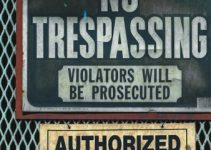The fourth amendment of the United States Constitution was established to protect citizens from unreasonable search and seizure. The fourth amendment limits the police’s power to make arrests, search people and private property, and seize any tangible items, including evidence of criminal activity and contraband (such as drugs, weapons, or stolen property). The specific application of this fundamental search and seizure right is subject to legal interpretation and is continuously in a state of flux. The judicial goal of search and seizure laws is to protect individual citizens’ privacy while allowing the reasonable pursuit of criminal justice and public protection.
Search, and seizure often requires law enforcement officials to obtain a search warrant for a search to be considered legal and the results admissible in a court of law. When police can present probable cause, a search warrant will be granted by a judge who will authorize the search of a particular location, at a specific time, for individual tangible items. Probable cause is established through the testimony (an affidavit) of a police officer or citizen under oath who provides reliable information about the person, place, and things in question.
A police investigation is subject to search and seizure laws when the study intrudes on a person’s privacy. A person’s expectation of privacy recognizes privacy in a given context, and that expectation is considered reasonable to society. An intrusion on another’s privacy is also evident when an investigation relies on high tech means. There are a variety of search and seizure situations that are not protected by the fourth amendment. If evidence or contraband is viewed or obtained without a breach of privacy, such as through the window of a car, an overheard conversation in a public place, etc., a warrant may not be necessary.
There are many situations where police have the right to perform a search and seizure without a search warrant. The following conditions allow an officer to conduct an investigation and seizure without a promise: the subject consents to a search, the search accompanies an arrest, the search is necessary to protect the public and prevent the imminent destruction of evidence, or when a criminal is fleeing a crime scene. Police may search cars, trash cans, school lockers, and backyards without a warrant under certain circumstances.
When a search and seizure investigation is underway, the police are only legally allowed to search the warrant’s specifics. It does not allow officials to search unnamed areas, persons, or property. Police are allowed to go beyond the provisions of a warrant to ensure safety, prevent the destruction of evidence, discover more about discovered evidence/contraband, and when such things are in plain view during a search and seizure.
There are cases where a search and seizure is performed illegally. When this occurs, the evidence obtained and subsequent evidence gathered may be inadmissible in a court of law. To learn more about your legal rights and options regarding search and seizure, you may wish to contact a qualified attorney.




